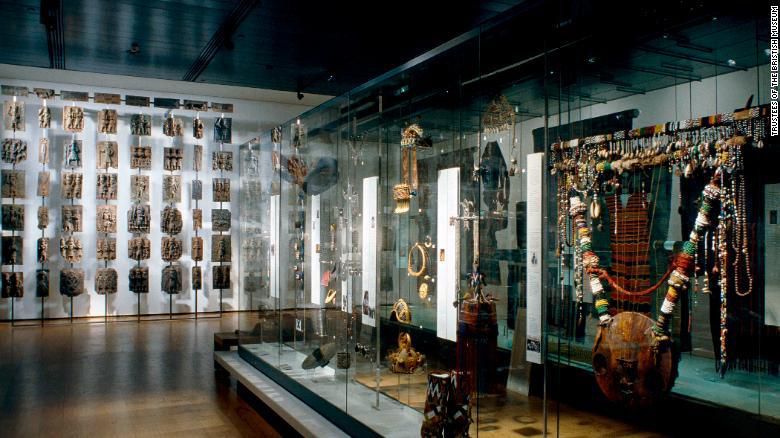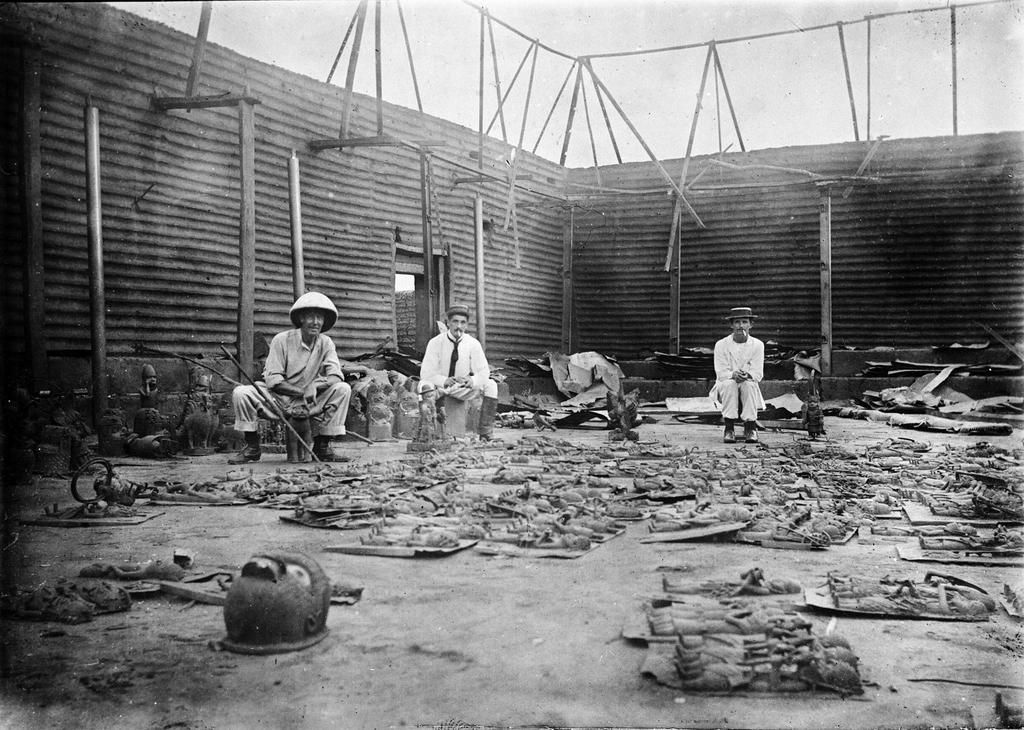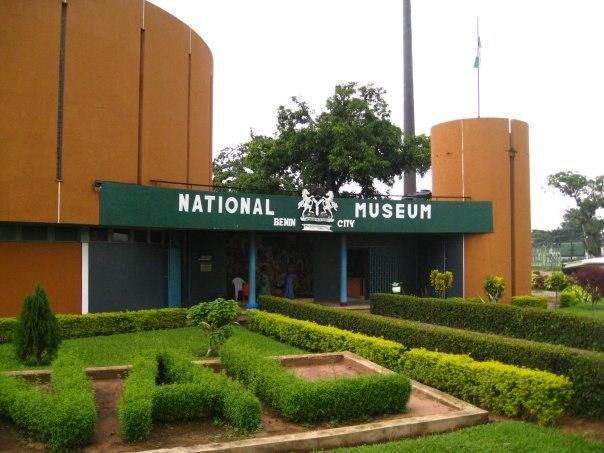British Museum finally agrees to 'loan' stolen Benin bronzes to Nigeria
)
The heat has been on Europe and its museums to return all African artifacts taken "without consent". The British Museum however is making plans for the
According to a report referenced by The Guardian, about 90% of Africa’s cultural heritage, as well as other kingdoms colonised, currently lies outside the continent. For Benin Bronzes taken from Nigeria alone, there are more than 1,000 of them being held at museums across Europe, with the most valuable collection at the British Museum in London.

Countries like South Sudan, Ethiopia, Easter Island, China, India have been pushing for sacred artifacts that were plundered by British, German, French, Portuguese soldiers, to be returned to their rightful places. Nigeria is not absent in this fight.
In fact, Nigeria has been brazenly demanding for the return of its looted artifacts right from time. In 1977, the Nigerian government offered to pay Britain £2m to loan us the Queen Idia ivory mask for the second pan-African Festival of Black & African Arts & Culture (FESTAC). The plea fell on deaf ears and the pride of the Benin people didn't make it home for one of the largest celebration of black arts and culture, FESTAC 77.
So why is Europe changing its mind now?
Who is bringing the heat?

In an epic scene in one of the biggest movies of 2018, Black Panther, a white female guide at the British Museum was schooling Killmonger, an African-American anti-hero, about historical art pieces from Ghana, Nigeria and Wakanda. The female guide mistakenly attributed an ancient mask to Benin but Killmonger corrected her by stating it was from Wakanda, and proceeded to reclaim it for his home country.
This scene is just one of the many reasons why the world could not continue to pretend that these artifacts were not actually stolen.

Another heat-packer is the French President Emmanuel Macron. The President recently called for a Euro-African conference on the return of African artifacts to be held in Paris by next April and has also declared that France would restitute 26 objects pillaged by French troops from King Behanzin’s palace in Abomey, Benin in 1892.
This development puts more pressure on other European countries and intensifies Africa’s push for the return of its cultural heritage items.
We cannot talk about these reasons without referring to the recent visit by the British Prince Charles and his wife to Nigeria, and other West African countries. In a meeting with prominent rulers from all the geo-political zones of Nigeria, the Oba of Benin, Eheneden Erediauwa Omo N’Oba Ewuare II, used the opportunity to bring up the return of the Benin bronzes to the Prince, saying:
"Suffice to say that Nigerians in general and Benin people in particular, will be most delighted to have Your Royal Highness throw his royal weight behind our efforts to have some of our ancient artifacts that were taken in 1897 from the Royal Court of Benin returned to Benin to establish Oba Palace Museum for the promotion of tourism in Benin city, Edo state."
Talk about taking advantage of a good opportunity.
The conditional return of the Benin Bronzes to Nigeria
So far, reports have been hopeful. However, the reality of the return of stolen artifacts to Nigeria is not as it seems.
According to CNN, a deal was struck last month by the Benin Dialogue Group (BDG) that would see "some of the most iconic pieces" in the historic collection returned on a temporary basis to form an exhibition at the new Benin Royal Museum in Edo State within three years.
In other words, the items will be "loaned" to Nigeria, to pacify agitations.
The BDG consists of representatives of several European museums, the Royal Court of Benin, Edo State Government, and Nigeria's National Commission for Museums and Monuments.
A spokesperson for the British Museum says to CNN, that the return is dependent on the completion of a new standard museum in Benin City, Edo state, that can suitably house a rotation of highly delicate Benin works of art from a consortium of European museums.

"The museums in attendance have all agreed to lend artifacts to the Benin Royal Museum on a rotating basis, to provide advice as requested on building and exhibition design, and to cooperate with the Nigerian partners in developing training, funding, and a legal framework for the display in a new planned museum,"the spokesman said.
The new Royal Museum is to be adjacent to the Royal Palace that once housed many of the bronzes.
The group is still to converge to discuss which pieces will be returned and how many.
It is silly to think that valuable cultural items that were stolen, in a bloody and humiliating raid nonetheless, are being loaned to the rightful owner. However, it is a step in the right direction and we can't wait for news on a more permanent return.
)
)
![The health benefits of ginger and garlic are unbelievable [Food NDTV]](https://image.api.sportal365.com/process/smp-images-production/pulse.ng/01082024/200694f2-3977-47a4-a142-89c80fe6766e?operations=autocrop(236:157))
)
![10 countries where prostitution is legal. [Source - scoop]](https://image.api.sportal365.com/process/smp-images-production/pulse.ng/31072024/5eda0369-74f6-4a3b-82f7-d7dab249c8ac?operations=autocrop(236:157))
![Tribal marks of Nigerian people and what they mean. [guardian]](https://image.api.sportal365.com/process/smp-images-production/pulse.ng/01082024/45e8c254-ebf2-4262-b639-c83e8b56a32e?operations=autocrop(236:157))
)
)
)
)
)
)
)
)
)
)